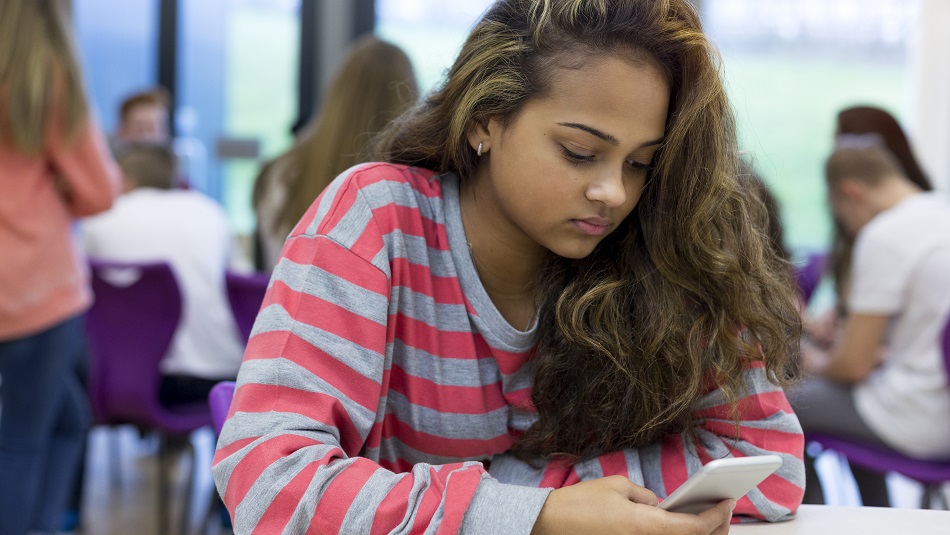
Physiological markers of stress go down when a person has their smartphone.
Possessing -- but not actually using -- a smartphone during moments of social isolation could reduce stress, according to a new study published in the journal Psychosomatic Medicine by a UCI Ph.D. student, his professor and others.
“It’s a situation we’ve all been in: You’re out and about and the conversation goes stale and everyone pulls out their smartphones,” said John Hunter, a Ph.D. candidate in psychology and social behavior, and the lead author on the study. “This retreat is so common, and results in a state of absent presence, where a person is physically there, but cognitively distant.”
Many studies have looked at the negative psychological and social effects of smartphones, but fewer have examined the positive effects. This new study suggests smartphones could buffer against feelings of social exclusion.
The study found that having the phone, but not using it, dramatically reduced stress in social situations. Using the phone didn’t help people feel less stressed, though it did help them feel less excluded.
“There’s something about having your phone but not using it that dramatically reduced stress,” Hunter said. “It could be that possessing your phone reminds you of your social support system, but that mindlessly scrolling through social media leaves you feeling worse about yourself.”
A total of 148 people participated in the study over roughly nine months. After completing questionnaires for about 25 minute and giving saliva samples to measure substances related to stress, participants were told to wait in a room with two others. One-third were encouraged to use their phones as they normally would, one-third were asked not to use their phones and one-third had their phones taken away.
At a certain point, two of the participants -- who were actually actors -- launched into a conversation to make the third person feel excluded, ignoring them and discussing, for instance, a fictional connection in Ohio. After, the participants gave additional saliva samples and completed more surveys.
The saliva samples were used to measure alpha amylase, which is released immediately in response to certain kinds of stress and reflects the fight-or-flight response, and cortisol, which is a delayed response to stress.
The researchers found that those who didn’t have their phones and those who used them had higher levels of alpha amylase -- and higher levels of physiological stress -- than those who had their phones but didn’t use them. Age, gender and ethnicity affect stress levels, and neither did a person’s self-reported level of connection to their smartphone.
“The body’s stress response, along with sensations of isolation, rejection and stress, can be harmful to future health,” said Sarah Pressman, an associate professor of psychology and social behavior, and a co-author on the study. “This is the first study to empirically show that smartphones make us feel better and observably reduce stress hormones in the body. This study points to the possibility that smartphones can be healthful in some ways.”